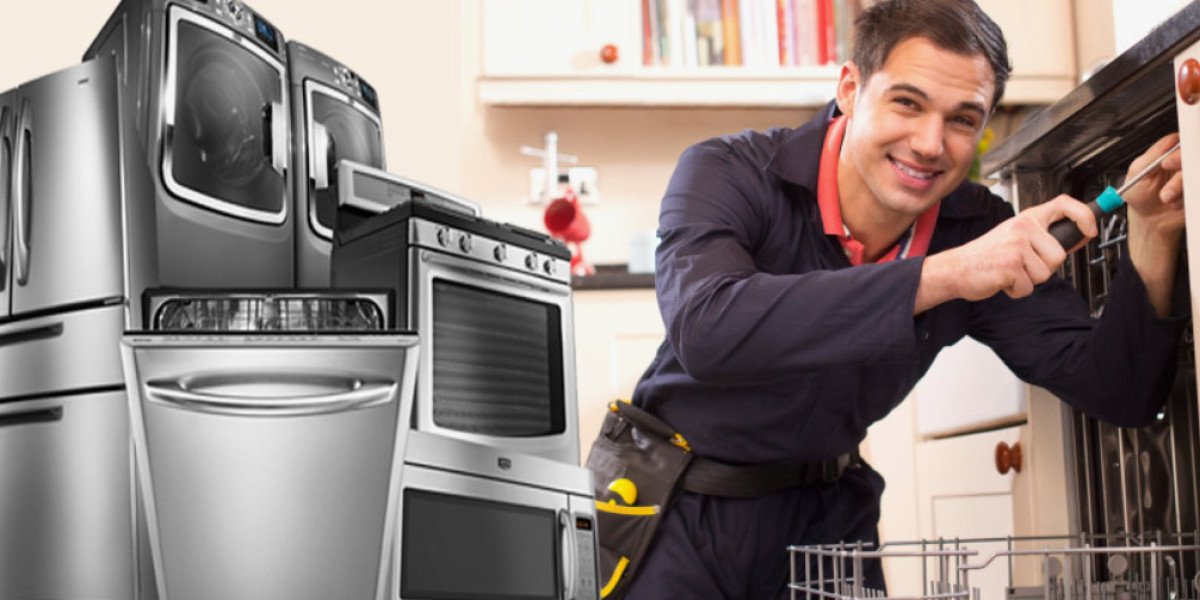Ice makers are convenient additions to modern refrigerators and freezers, especially in homes that frequently entertain guests or live in warmer climates. However, when your ice maker stops producing ice, it can be frustrating and puzzling. Many homeowners in search of answers often end up seeking Appliance Repair in Fort Lauderdale, FL to get their ice makers functioning again. Understanding the common causes of ice maker malfunctions can help you troubleshoot effectively and determine when professional help is necessary.
How Ice Makers Work
Before diving into what might be going wrong, it’s helpful to know how an ice maker functions. Most ice makers operate on a relatively simple process:
Water Supply: A water inlet valve allows water to flow into a mold.
Freezing Process: The water freezes into cubes within a set period.
Harvesting Cycle: Once frozen, a heating element warms the mold slightly, releasing the ice cubes.
Ejection: A motorized arm or mechanism ejects the ice into a bin.
This process runs on a loop and requires several components to function correctly. A fault in any one of them can lead to a malfunction.
Common Reasons Your Ice Maker Isn’t Producing Ice
1. Water Supply Issues
One of the most frequent culprits behind a non-functioning ice maker is a lack of water. If the ice mold isn’t filling with water, the problem might be:
A clogged or frozen water line
A kinked water supply hose
A malfunctioning or blocked water inlet valve
Check the water line and ensure there are no obstructions or signs of freezing. You may also need to test the valve to confirm it’s operating as intended.
2. Clogged or Dirty Water Filter
Most refrigerators with built-in ice makers have a water filter that ensures clean water is used for ice production. Over time, this filter can become clogged with minerals and debris, restricting water flow.
Solution: Replace the water filter every six months or as recommended by the manufacturer.
3. Faulty Ice Maker Assembly
Mechanical or electrical issues within the ice maker assembly itself can also be to blame. These issues include:
A defective motor
A broken ejector gear
Malfunctioning thermostat
Wiring problems
Some components may be replaceable individually, but in many cases, it might be more efficient to replace the entire ice maker assembly.
4. Temperature Too High
If the freezer isn’t cold enough, ice will either form too slowly or not at all. Ideal freezer temperatures for ice production are between 0°F and 5°F (-18°C to -15°C).
Causes of higher temperatures include:
Dirty condenser coils
Faulty thermostat
Overloaded freezer blocking air flow
Defective evaporator fan motor
5. Control Arm or Switch Is Off
Most ice makers include a control arm or switch to turn the unit on and off. If this switch is inadvertently turned off or the arm is stuck in the “off” position, the ice maker will not operate.
Solution: Check that the control arm or power switch is set to the “on” position.
6. Defective Door Switch
Refrigerators are designed to pause ice production when the freezer door is open. If the door switch is defective, the unit might mistakenly detect an open door and suspend ice making.
You can test the door switch for continuity using a multimeter. If it fails the test, it should be replaced.
Signs That You Need Professional Help
While many of the above issues can be diagnosed or fixed by a handy homeowner, some problems require professional attention. These include:
Internal electrical faults
Faulty wiring
Complex part replacements (like control boards)
Recurring water line freezes
Persistent leaks
Local experts who specialize in Appliance Repair in Fort Lauderdale, FL can offer fast diagnosis and repairs, helping you avoid guesswork and unnecessary expenses.
Preventive Maintenance Tips
Keeping your ice maker in good working condition requires regular maintenance. Here are some practical tips:
Clean the Ice Maker Regularly: Remove mineral deposits and sanitize the unit.
Replace Water Filters on Time: Prevent clogs and ensure clean ice.
Monitor Freezer Temperature: Use a freezer thermometer to ensure optimal performance.
Avoid Overfilling: Don’t block the ice bin or overfill the freezer.
These small efforts can significantly extend the lifespan of your ice maker and reduce the likelihood of costly repairs.
When Replacement Makes More Sense Than Repair
In some situations, repairing an old or inefficient ice maker may not be worth the time or cost. If your unit is:
More than 10 years old
Requires frequent repairs
Has outdated technology or poor energy efficiency
…then replacement may be the smarter option. Modern ice makers come with energy-saving features, improved water filtration, and higher production capacities.
Conclusion
A non-working ice maker doesn’t always mean a major disaster—it could be something as simple as a clogged filter or a control arm that’s been accidentally flipped off. By understanding the most common issues and performing routine maintenance, you can often solve the problem quickly. However, when the fix is beyond your expertise, calling a reliable technician for Appliance Repair in Fort Lauderdale, FL ensures your kitchen gets back to normal without added stress or delays.








